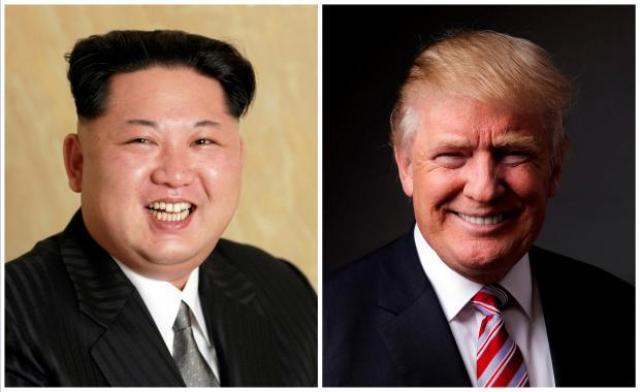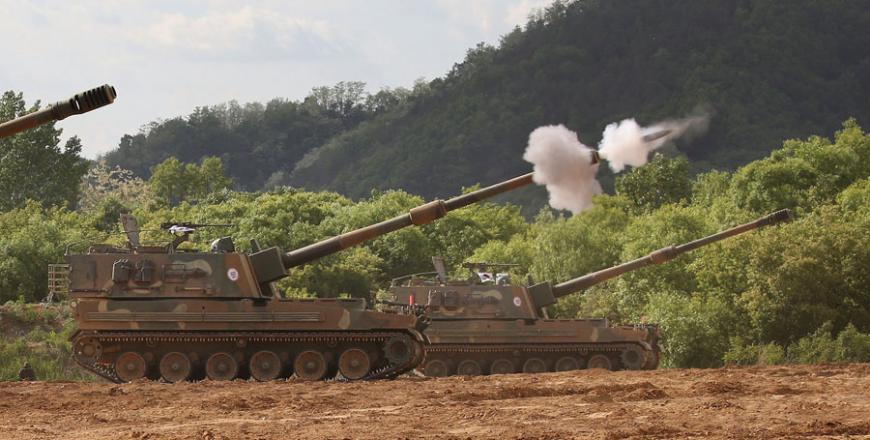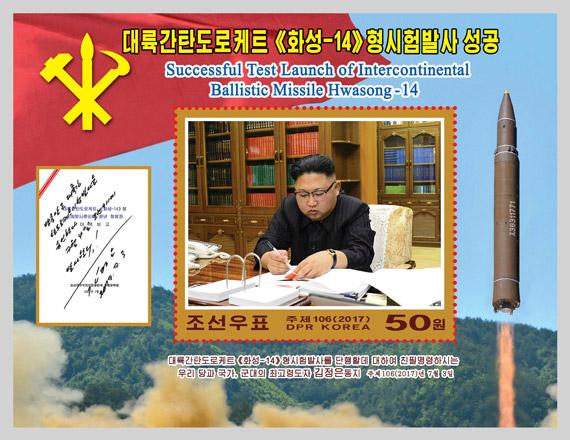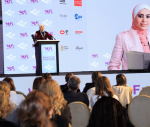You are here
70 years on, hope remains high for Korean reunification
By Mohammad Ghazal - Jun 06,2015 - Last updated at Jun 06,2015
SEOUL — As this year marks the 70th anniversary of the Korean Peninsula division, South Korean officials say hope remains high for reunification, while stressing commitment to dialogue to improve ties with their neighbours in the north.
South Korea has repeatedly proposed holding an inter-Korean dialogue without any preconditions to push for reunification, the officials said.
But no results have materialised.
The Korean War, which erupted in 1950, ended with an armistice agreement, which was later followed by the creation of demilitarised zone, the world's most heavily fortified zone, dividing South and North Korea.
The zone runs along a line of 248km long and 4 kilometres wide (2 kilometres on each side) that zigzags across the middle of the peninsula.
Soldiers from North Korea's army patrol the northern side of the DMZ and could be seen a few metres away from the South Korean soldiers.
"This is one of the most tense areas in the world...We need you all to follow the instructions very carefully as we do not want to provoke the North Korean soldiers," a South Korean soldier said during a recent visit to the zone by The Jordan Times, along with over 100 journalists from around the globe, organised by the Journalists Association of Korea as part of the World Journalists Conference 2015.
"We are always watching our enemy and they are always watching us," said the soldier.
"Do not make any sudden moves. Do not make any gestures with your hands. Do not wave to the North Korean soldiers. They might be provoked. This could make them react violently… You can take pictures when we give you the approval," the soldier told the delegation as they arrived at the zone.
According to soldiers at the area, North Korea has 1.1 million soldiers of whom about 70 per cent are within 161km of the demilitarised zone.
The zone symbolises the state of continued tension between the two countries, said one soldier as he added that the area has become a very popular tourist attraction, where people come to stare at North Korean soldiers.
During the several-day visit to South Korea, officials repeatedly emphasised their country's pursuit of peace, while expressing hope for reunification.
"Germany, a divided nation until 25 years ago, has not only achieved reunification, but also now taking the lead in the European integration process. Unfortunately, however, despite 70 years of the painful history of national division, distrust and conflict and tension still run high between the two Koreas,” Cho Tae-yul, vice foreign minister of the Republic of Korea, said in an address at one of the sessions held as part of the conference.
"North Korea has been simultaneously pursuing economic development and nuclear armament, threatening not only the South, but the rest of the world as well," he said.
North Korea has refused any attempt for reunification, Cho added.
"North Korea, however, has been refusing to accept our proposal by insisting on preconditions, such as the suspension of the annual joint Korea-US military exercises and anti-North Korean NGOs sending of propaganda leaflets into the North," he added.
"We cannot help but feel a deep sense of despair when looking at the North Korean authorities engrossed in developing nuclear weapons, while turning a blind eye to the plight of its own people whose human rights are being seriously violated and the tragic reality of thousands of separated families passing away every year," Cho said.
"Korea’s reunification, is not a mere dream, but a future that the Korean people are committed to realising," said the deputy foreign minister.
During the visit, Kyung Won, chairperson of the South Korean foreign affairs and unification committee, stressed his country's commitment to efforts towards reunification.
"We all have to aim for the construction of a community pursuing common happiness, an economic community, a social community, and a security community," Kyung said.
People in South Korea, however, seem to be more careful about any reunification with North Korea.
When asked about what country matters to them the most, 60 per cent of South Koreans said the US and 55 per cent said China, according to a poll by the Asia and the Dong-A Ilbo in South Korea, which was presented to journalists during the visit.
According to the poll, about 70.6 per cent of South Koreans said there is no need to rush reunification with North Korea.
The poll showed that 29 per cent of South Koreans believe that reunification will add an economic burden on them.
"I hope that reunification will happen… But I think it will be very difficult. Maybe we are the same people in terms of race and ethnicity, but with 70 years of division. I think it is very difficult as you have two peoples with two different ideologies — two different lifestyles and two different economies and even sometimes culture and language," a Korean teenager told The Jordan Times during the visit.
"We also need to see some concessions and efforts by the North Koreans if they want reunification," said the teenager, who asked not to be named.
"I hope there will be reunification one day, but maybe my grandsons will see that, not me," she said.
Related Articles
SEOUL - North Korean leader Kim Jong Un's sudden overtures to Washington are making headlines around the world.
North Korea said Wednesday it had perfected the technology to make nuclear warheads, not long after announcing it had launched a ballistic missile from a submarine, dramatically upping military brinkmanship with its US-led foes.
BEIJING — China will pay the biggest price from the new UN sanctions against North Korea because of its close economic relationship with the



















